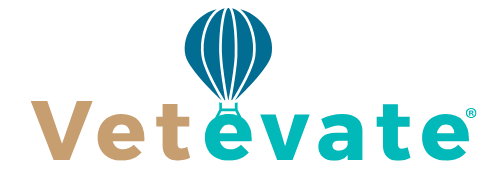Veterinary medicine is a diverse and demanding field, and the most desirable jobs—those with strong compensation, work-life balance, professional growth opportunities, and rewarding casework—attract high-quality candidates from across the industry. If you’re wondering whether you qualify for these roles, the first step is understanding what sets them apart and what employers are truly looking for. The best veterinarian jobs often go beyond basic expectations; they require a mix of clinical excellence, soft skills, adaptability, and a commitment to ongoing development. These roles aren’t reserved for a select few—they’re attainable for those who put effort into refining their qualifications and strategically positioning themselves in the job market.
Foundational qualifications include graduation from an accredited veterinary program, passage of the NAVLE, and active licensure in the state where the job is located. But in competitive markets, this is only the beginning. Employers offering the best roles are also looking for clinical experience, continuing education, specialized skills, and evidence of personal initiative. For example, veterinarians who pursue certifications in dentistry, surgery, acupuncture, or Fear Free practices often stand out in applicant pools. Likewise, experience working in varied environments—such as shelters, rural practices, or specialty clinics—can give your resume added depth. Employers want to see not just what you know, but how you’ve applied your knowledge in real-world settings to improve patient outcomes and team efficiency.
Soft skills also play a crucial role in determining whether you’re a strong candidate for top-tier jobs. The ability to communicate clearly with clients, work cooperatively with team members, and handle pressure with professionalism is highly valued. Many employers place a premium on emotional intelligence, especially in practices that emphasize client education and long-term care. If you’re already working in the field, pay attention to feedback from peers and supervisors. These insights can help you identify your strengths and determine areas for growth—both of which are essential to moving up the career ladder and qualifying for the best veterinarian jobs.
Assessing Your Readiness with Self-Evaluation
Before applying to high-level veterinary positions, it’s helpful to conduct an honest self-assessment. Consider your technical skills, professional demeanor, and career goals. Ask yourself questions like: What kinds of cases do I handle confidently? Where do I need more experience? What do I want from my next role—better hours, a higher salary, more challenging cases, or a stronger team culture? Understanding your motivations will guide your job search and ensure you apply for positions that genuinely suit your professional profile.
Feedback from others can be one of the most useful tools for assessing your readiness. If you’ve recently completed an internship or are employed in a clinic, seek out evaluations or informal feedback from supervisors, mentors, or colleagues. These professionals can often identify strengths you might overlook and pinpoint areas where further training could help you stand out. This kind of feedback also reflects what hiring managers will notice—so the more you understand how others view your capabilities, the better you can prepare your application materials.
Another way to gauge your readiness is by comparing your current qualifications against job descriptions for roles you’re interested in. Veterinary job boards are ideal for this. Read several listings for positions that seem like a good fit. Look closely at the education, experience, and skill requirements. If you find that you meet many of the qualifications but fall short in a few key areas, use that information as a roadmap for your professional development. Whether it’s gaining surgical experience, improving your ultrasound skills, or completing a course in practice management, targeted improvements can quickly make you a stronger candidate.
In some cases, you may discover that you’re more qualified than you initially believed. Often, professionals underestimate their capabilities or fail to recognize how valuable their specific experiences are. For example, if you’ve led a team project or developed new protocols in your current clinic, those are leadership and innovation skills that translate well to higher-level roles. Recognizing these assets and learning how to present them effectively is essential to advancing your veterinary career.
How to Use Veterinary Job Boards
Veterinary job boards do more than list openings—they serve as real-time snapshots of the veterinary employment market. By using these boards regularly, you can stay informed about what employers are seeking, which roles are in demand, and how your qualifications compare to current expectations. This visibility is crucial when determining if you qualify for the best veterinarian jobs and what steps you might need to take to close any gaps.
One advantage of job boards is their filtering and categorization features. You can search by job type, location, experience level, and even specialization. This allows you to view a targeted selection of jobs that match your interests and goals. Over time, you’ll notice patterns in how employers describe their ideal candidates. Pay attention to common themes—whether it’s an emphasis on surgery, client communication, team management, or compliance knowledge—and evaluate how your current skill set aligns with those priorities.
Job boards also often include salary estimates, benefits packages, and information about company culture. These details help you understand what to expect and what you can reasonably ask for. If you find that your qualifications match the requirements of higher-paying or more prestigious roles, that’s a strong indicator that you’re ready to move up. If not, that’s equally valuable information—it shows you where to focus your efforts in terms of skill-building or credentialing.
Some veterinary job boards go a step further by offering career resources such as resume templates, interview prep guides, and continuing education listings. These tools can help you refine your application materials and present yourself more effectively to employers. They may also offer options to upload your resume for employers to view, increasing your chances of being contacted for positions that match your background. The more active and intentional you are on these platforms, the more insights you’ll gain into how your qualifications compare and what next steps to take.
Positioning Yourself for Top Veterinary Jobs
Once you’ve identified that you’re qualified—or close to qualified—for the best veterinarian jobs, the next step is to position yourself effectively in the job market. This means presenting your skills, experience, and personality in a way that resonates with the kind of employers you want to work for. Your resume, cover letter, and even your professional profiles on veterinary job boards should tell a clear story of where you’ve been, what you’re good at, and where you want to go next.
A strong resume emphasizes accomplishments over responsibilities. Focus on measurable results, such as improved patient recovery rates, reductions in appointment wait times, or successful management of complex cases. Your cover letter should be tailored to each job and should reflect your understanding of the employer’s mission and how you can contribute to it. Use examples from your work experience that show leadership, problem-solving, and compassion—qualities that are prized in every veterinary role, but especially in the best ones.
If you’re using a veterinary job board, take advantage of features that allow you to build out a candidate profile. These platforms often enable you to add certifications, areas of interest, preferred practice types, and even species preferences. The more specific and accurate your profile, the more likely you are to be matched with relevant roles or contacted by recruiters looking for candidates like you. Job boards are also great for passive visibility. Even if you’re not actively applying, simply being discoverable can open doors to unexpected opportunities.
Networking also plays a role. Use the connections you make through job boards, past employers, professional associations, and continuing education events to learn about open positions and get referrals. Word of mouth is powerful in the veterinary industry, and often, the best jobs are filled before they’re even posted publicly. Staying active and visible in your professional circles increases your chances of being top of mind when those openings arise.
Finding Top Veterinarian Jobs
Figuring out whether you qualify for the best veterinarian jobs requires self-reflection, honest feedback, and a clear understanding of the market. Veterinary job boards are valuable in this process—they show you what’s out there, what employers are looking for, and how you measure up.
By using these platforms to assess your readiness, develop your skills, and connect with the right opportunities, you can confidently pursue roles that match your potential. Whether you’re just entering the field or looking to make a significant career move, the path to your ideal job becomes much clearer when you use veterinary job boards as both a resource and a guide.




